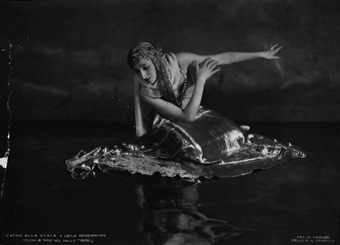 |
| I'm not Persian . . . I'm a
Kurd. |
|
My grandfather
was the crown prince
of Kurdistan,
which is on the
frontier
between Persia,
Turkey and Syria. |
|
But since the Turkish conquest,
the independent princes in our family have become
spread over a wide area. |
I was born in Turkey,
in Constantinople.
When I was very young,
I left for Egypt
with my mother and
spent my childhood there. | |
When, after the tragic death of my father, the
Emir,
I fled from my revolt-stricken country,
dancing became my very reason for living, my life's
aim. |
| I only came to Europe after the
war, to study in Switzerland. |
| I've always loved dancing. |
 |
I don't learn my dances.
I dance instinctively using
very stylized popular themes. |
|
I settled in Paris where,
after two recitals,
I decided to spend a year
researching the religious rites
of ancient Persia, Egyptian
Mazdeism [Zoroastrism], Indian,
and Oriental sacred dances. |
Leila Bedirkhan
Kurdish dancer, living in Paris in the 1930s
Paris Midi, December 16, 1932
Comedia, December 9, 1930
From the book, Kurdistan,
In the Shadow of History. |
|